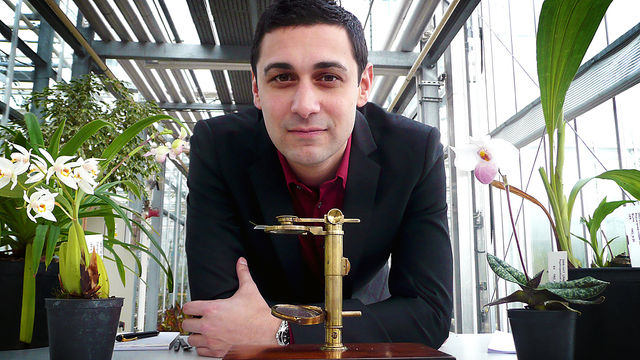The Cell
Par Pierre, Friday 28 August 2009 à 00:50 :: Reviews :: #106 :: rss
BBC Four recently showed a three-part documentary series called The Cell. It shows once more the unequalled craftsmanship of the broadcaster for this type of charismatic, entertaining and enlightening shows. After The Story of Maths, featuring Marcus du Sautoy, and How the Celts Saved Britain, by Dan Snow, The Cell features another enthused specialist, Adam Rutherford. And this might be the secret behind the success of these shows: their makers simply love what they're talking about, and their interest is communicated to us.
I mean, I would never have watched a history programme if it hadn't been enthralling. And where both du Sautoy and Snow showed a strong, but reserved interest in their topic, Rutherford was the archetypal fanboy. His joy at seeing the original equipment was clear and, most importantly, communicative.

Like The Story of Maths before it, The Cell covers the history of its topic - from the discovery of the cell to the most modern developments. And just like its predecessor, it succeeds in two very important challenges: it makes its subject matter alive and vibrant, but it also makes it manageable: indeed, the discoveries from just fifty years ago are now in the A-Level syllabus, but were the result of hard work. As a result, today's discoveries (about switch genes, for instance?) look like they might get easy to understand, at some point. It makes research much more worthy.
But The Cell has its defaults, its inaccuracies when it tries to oversimplify. The most unforgiveable one is probably the CGI showing cells dividing with their nuclei staying nicely in their middle... Other minor defaults include the attribution of the discovery of DNA: in part 2, it is done properly, so why go over it too quickly again in part 3? Why insist on God and Darwin in part 3? It would have been justified if the actual creation of a cell had been shown to be random. However, as it stands, DNA bases come seemingly from outer space (but how did they develop there in the first place?) and it is possible to get amino-acids spontaneously developing in a pre-biotic soup. And the much hyped second genesis experiment only shows it is possible to get spontaneously ribosomes from other parts, though the creation of those parts is not explained (RNA polymerase specifically).
So there are defaults. Especially in part 3. But the whole thing is worth watching, yes, even when Adam Rutherford burns himself voluntarily. Because this is exactly the behaviour I would expect from a fanboy, and it makes the whole show more vibrant, if a little weirder!
Finally, Adam Rutherford (or should I say Dr Adam Rutherford, editor of Nature?) is a man of many talents, and his blog series on Alpha from an atheist perspective is very much worth reading!
Commentaires
Aucun commentaire pour le moment.
Ajouter un commentaire
Les commentaires pour ce billet sont fermés.